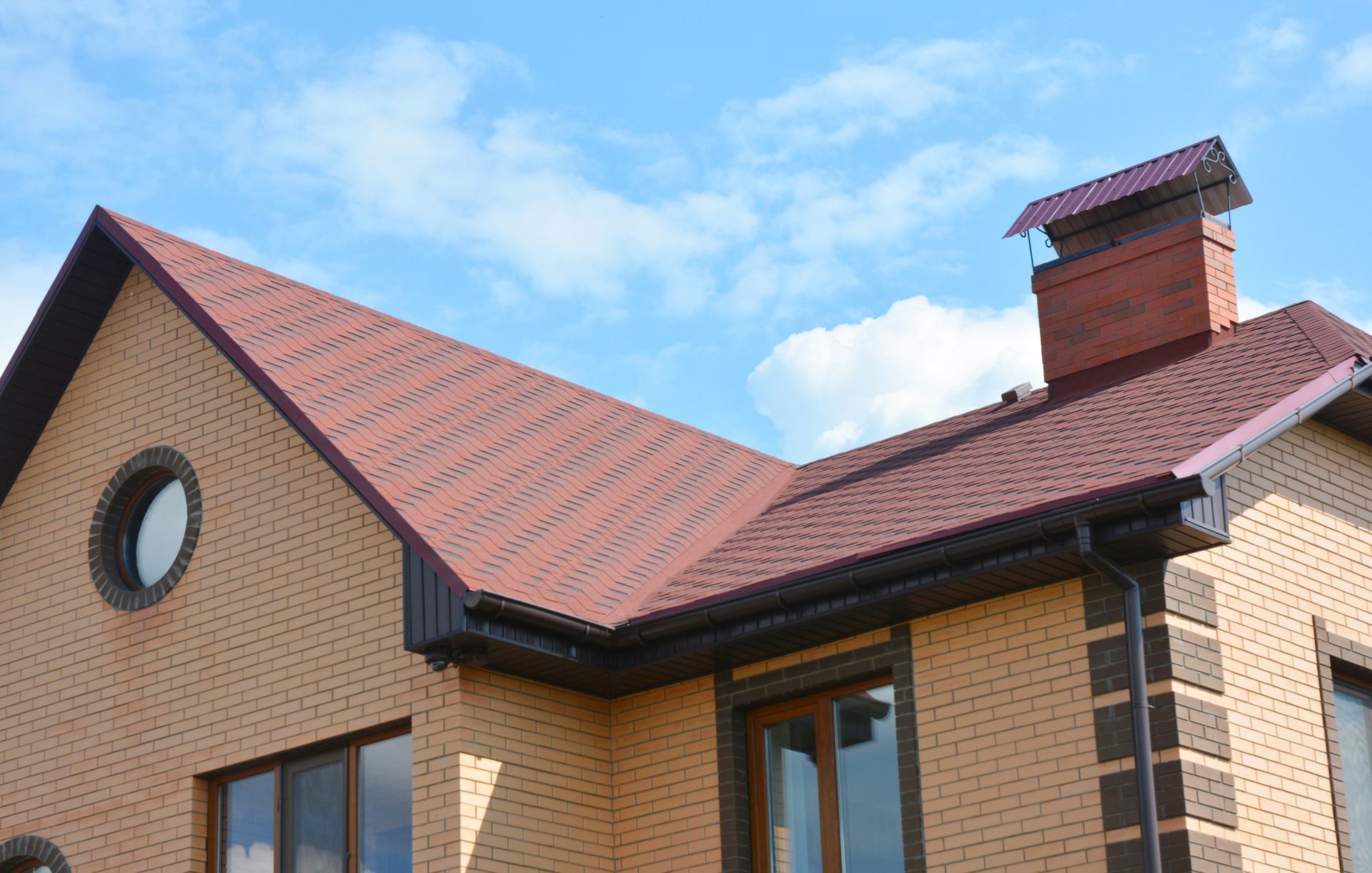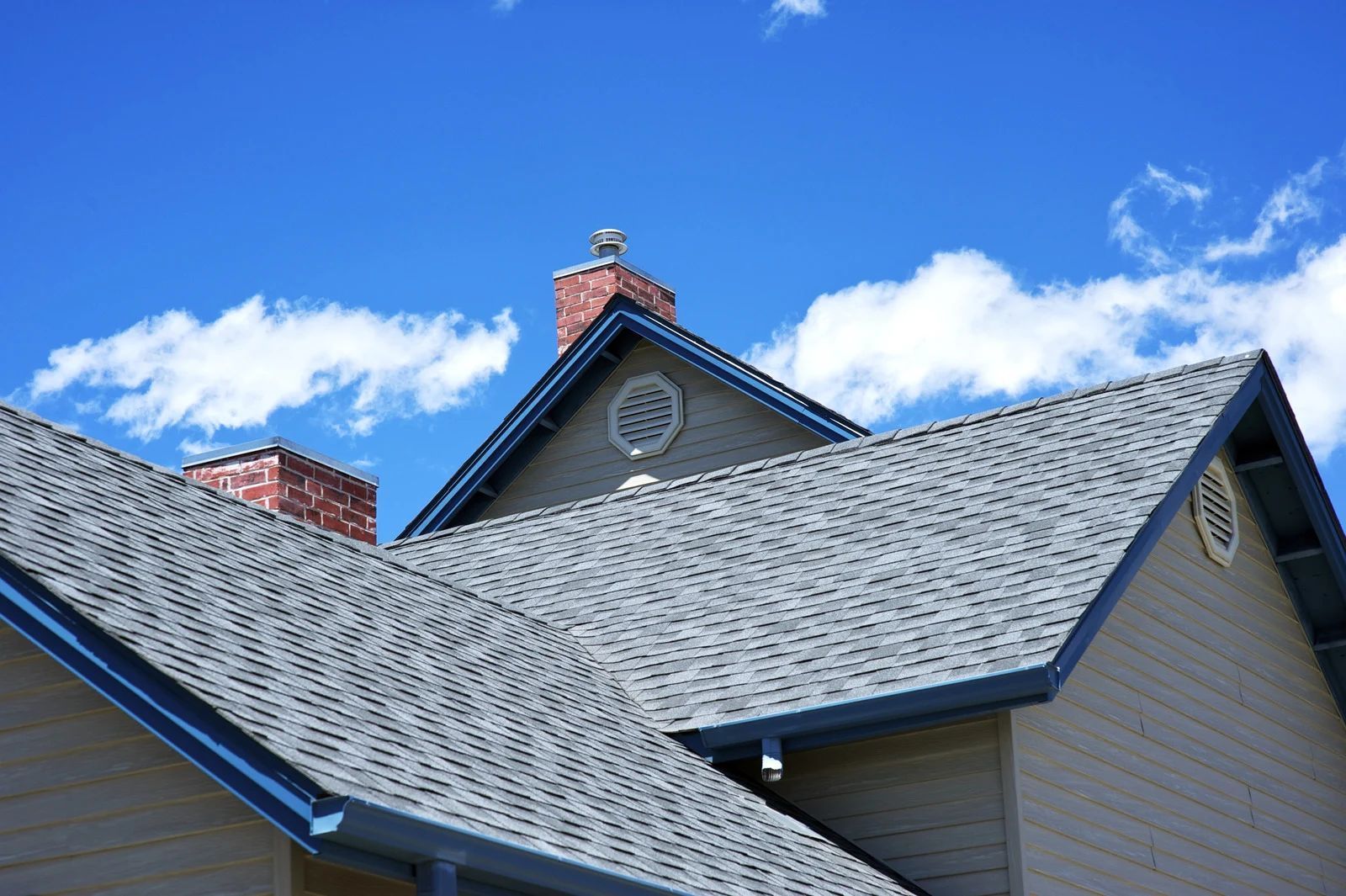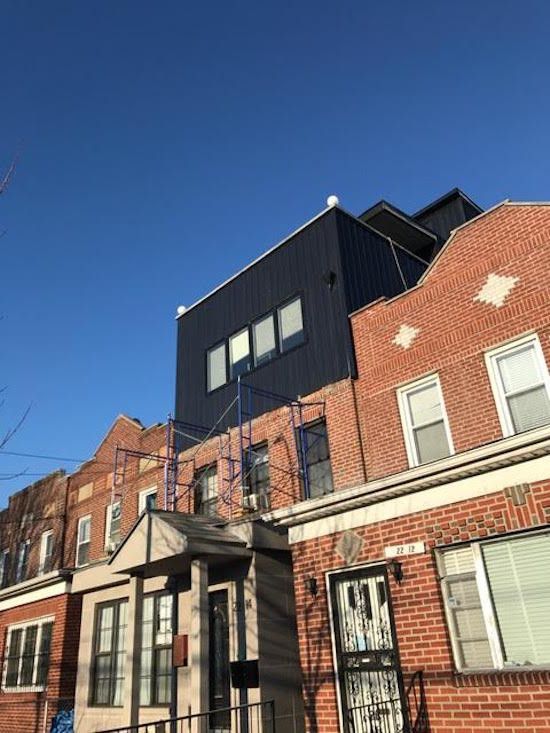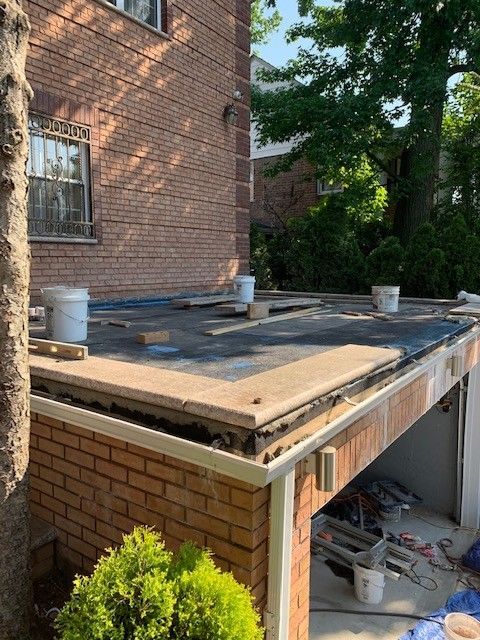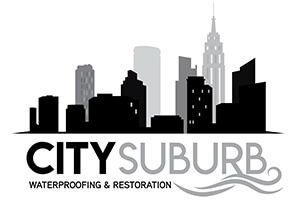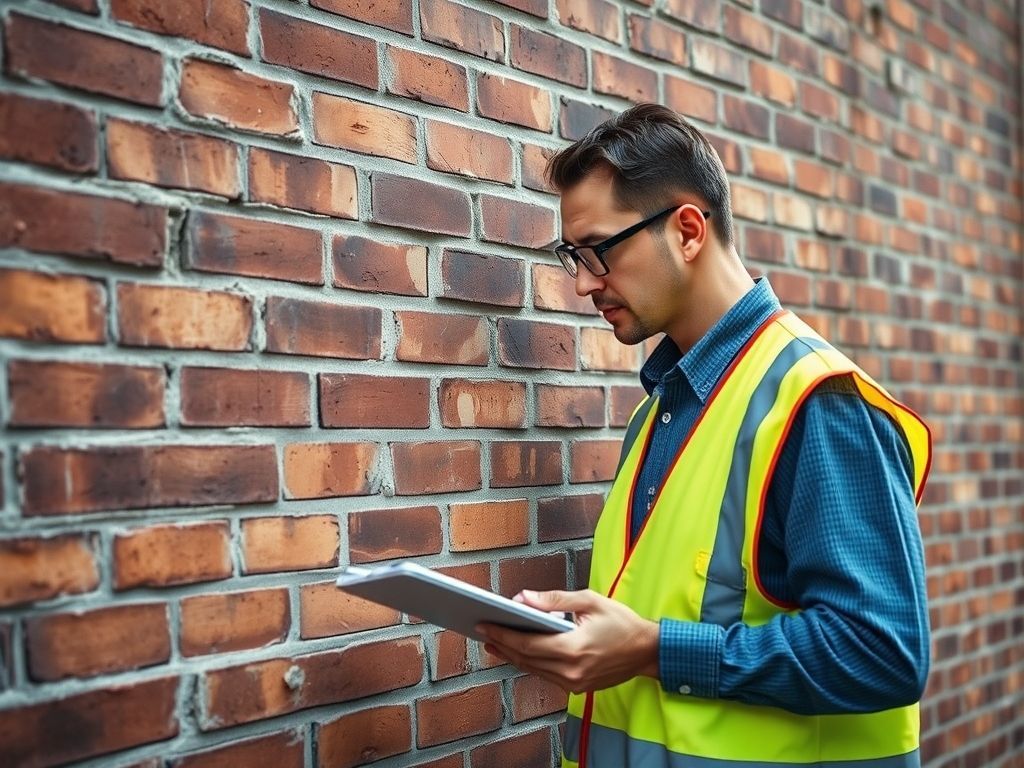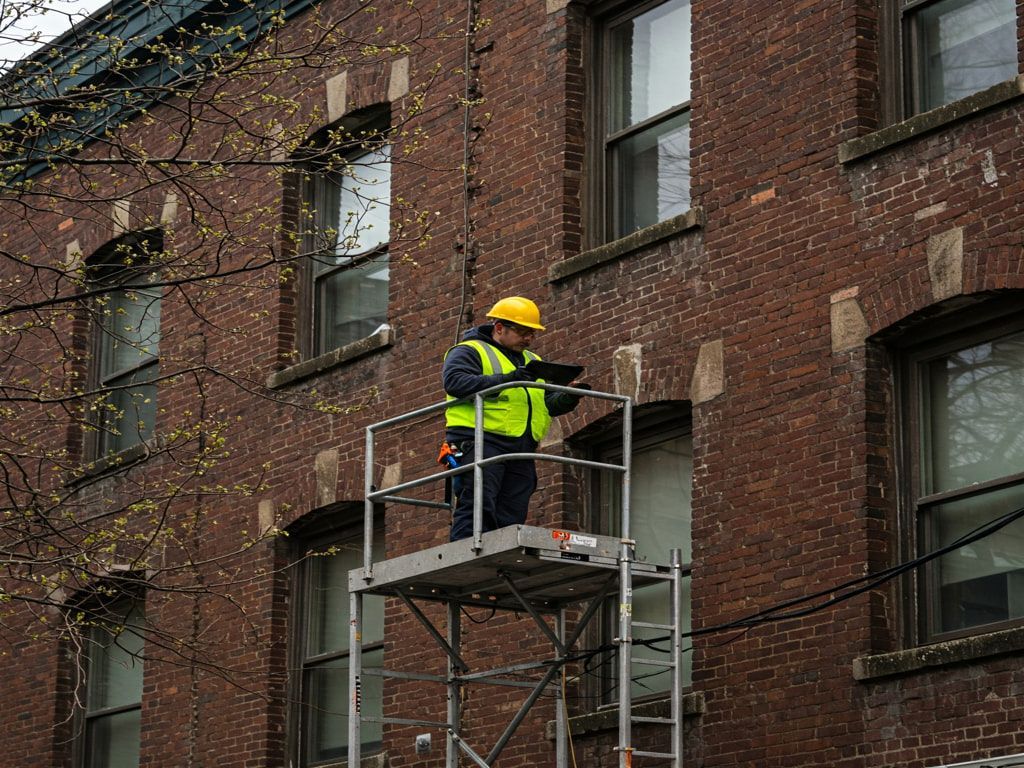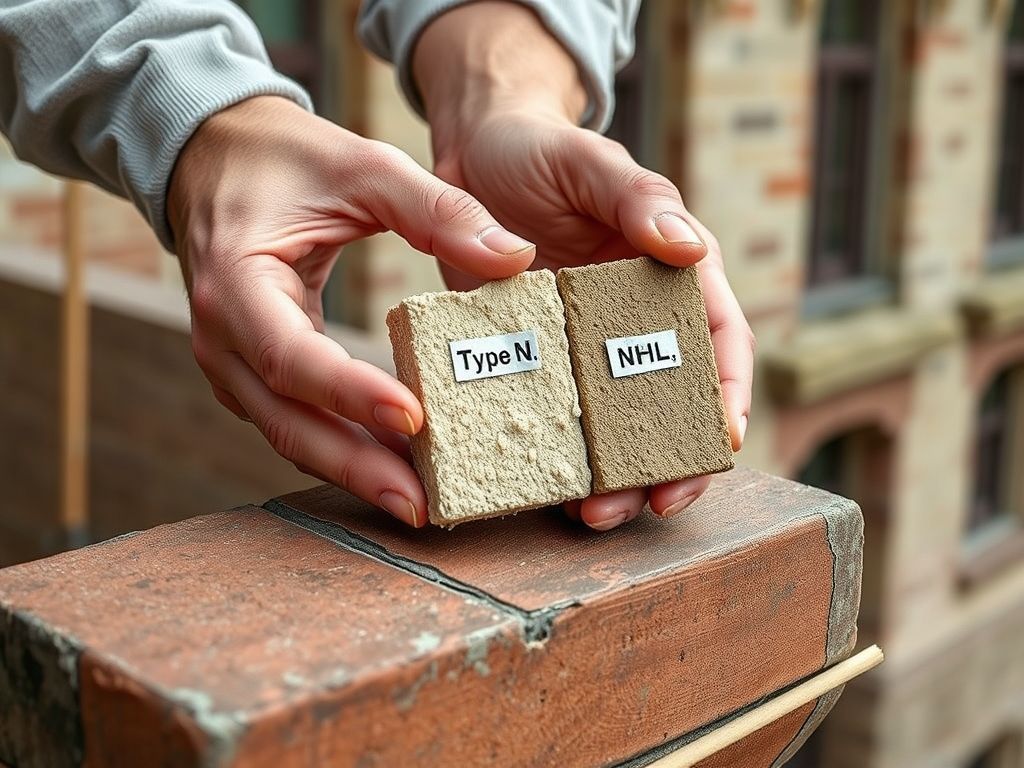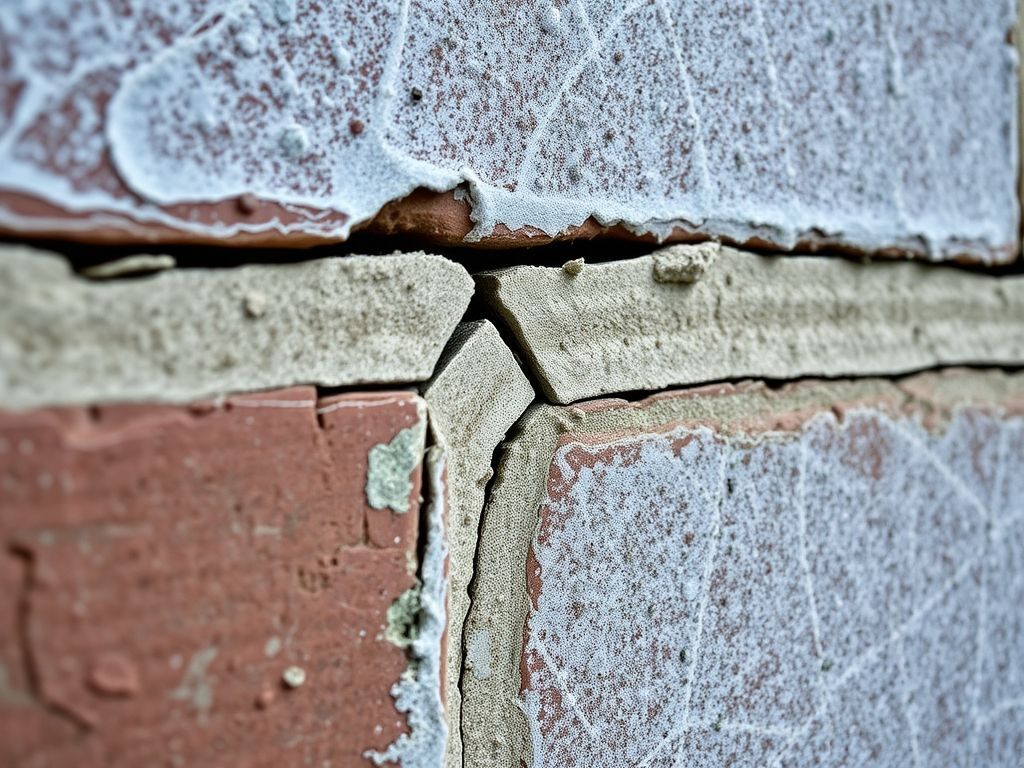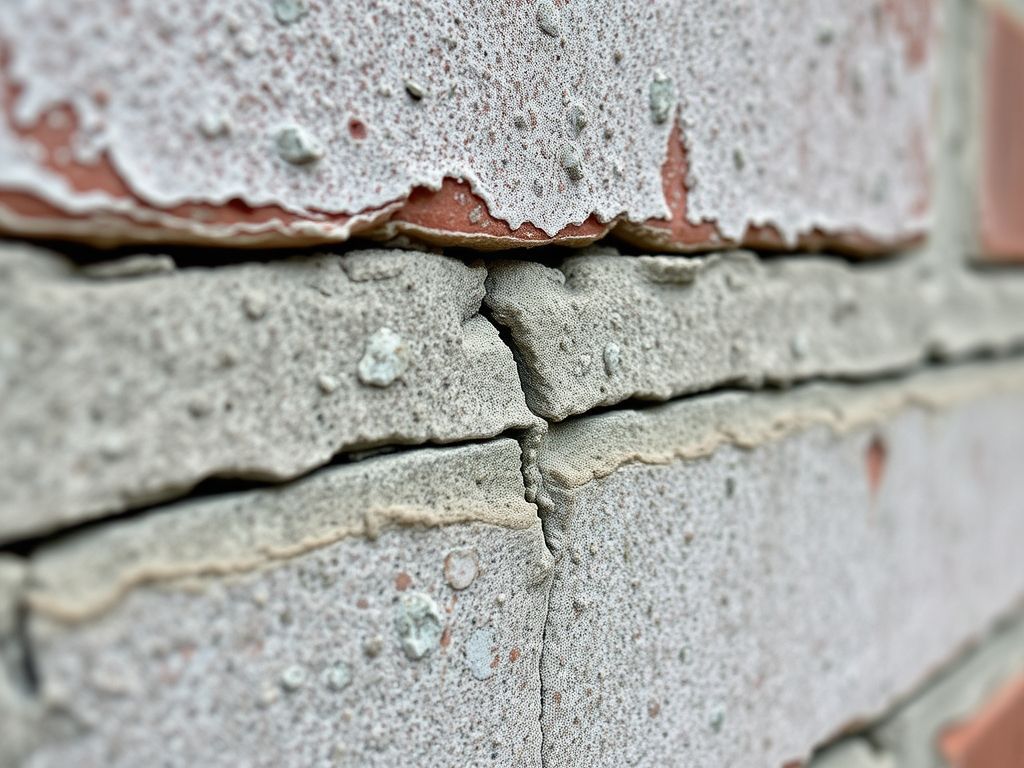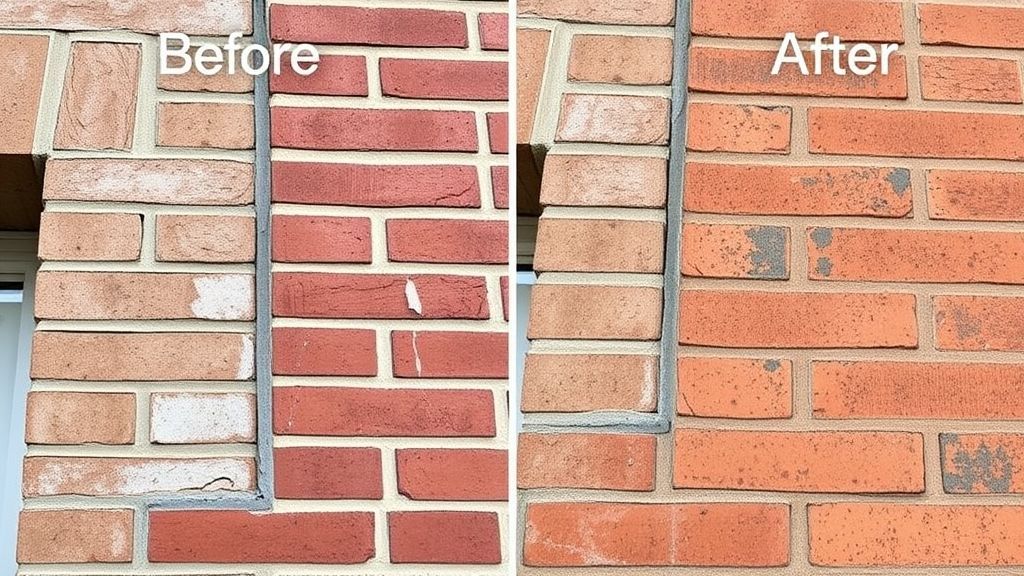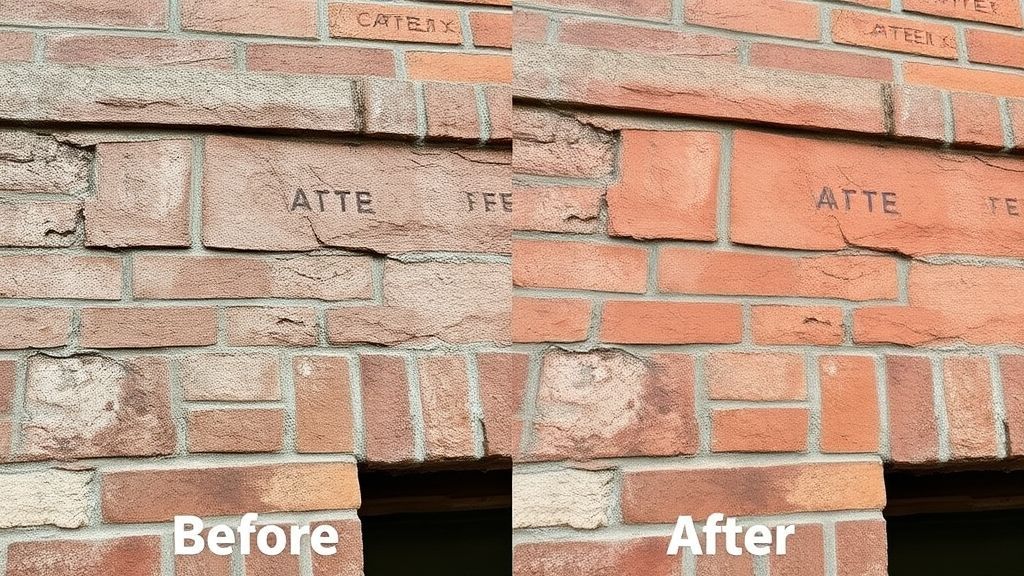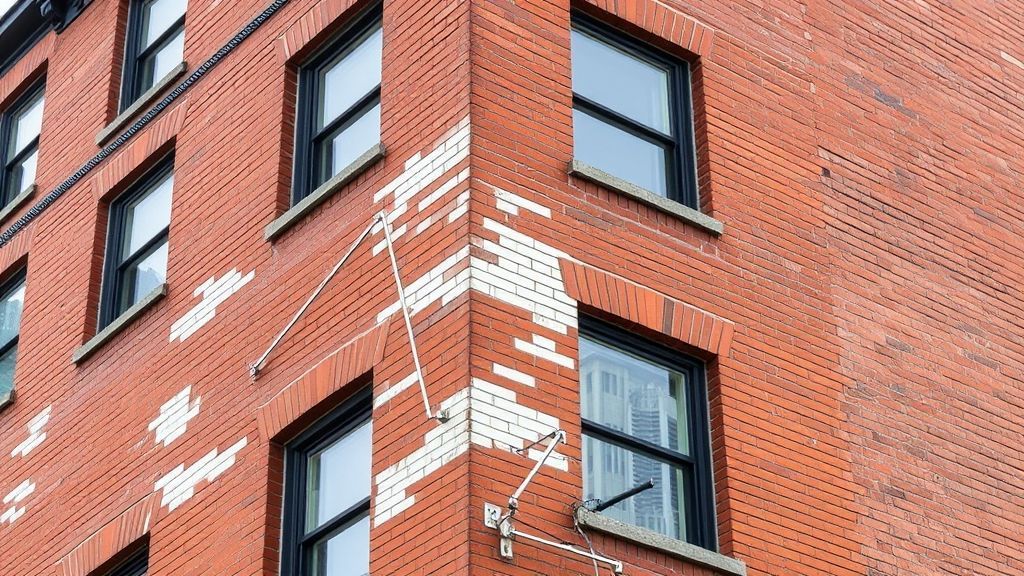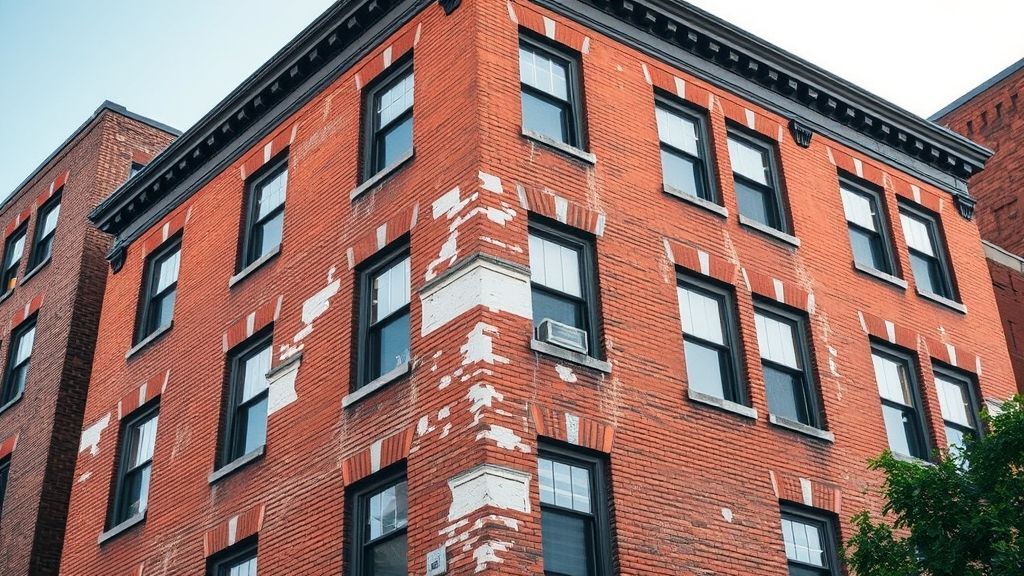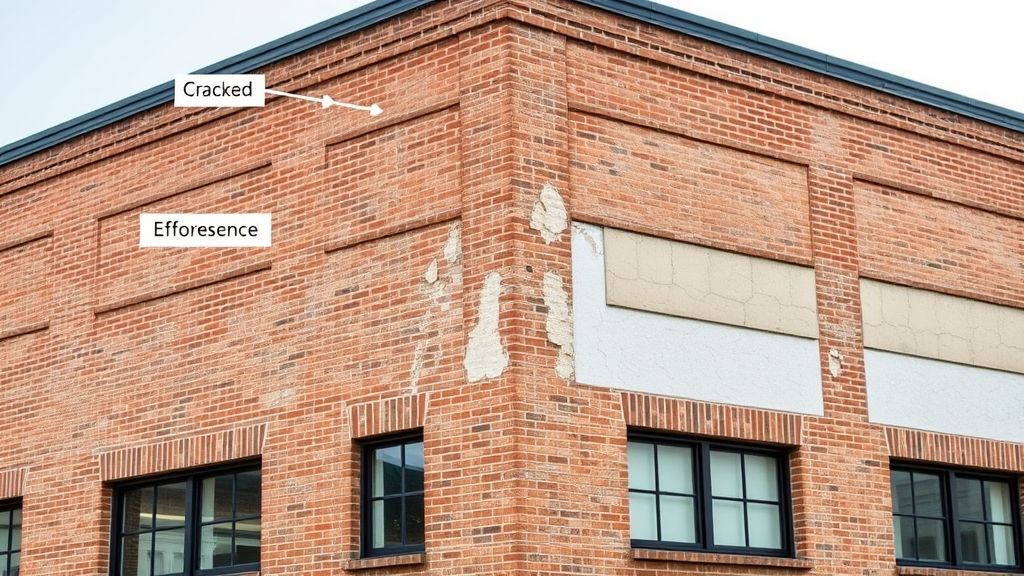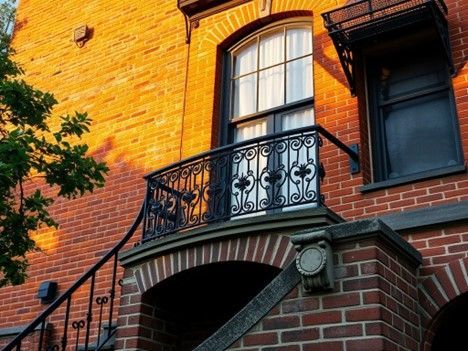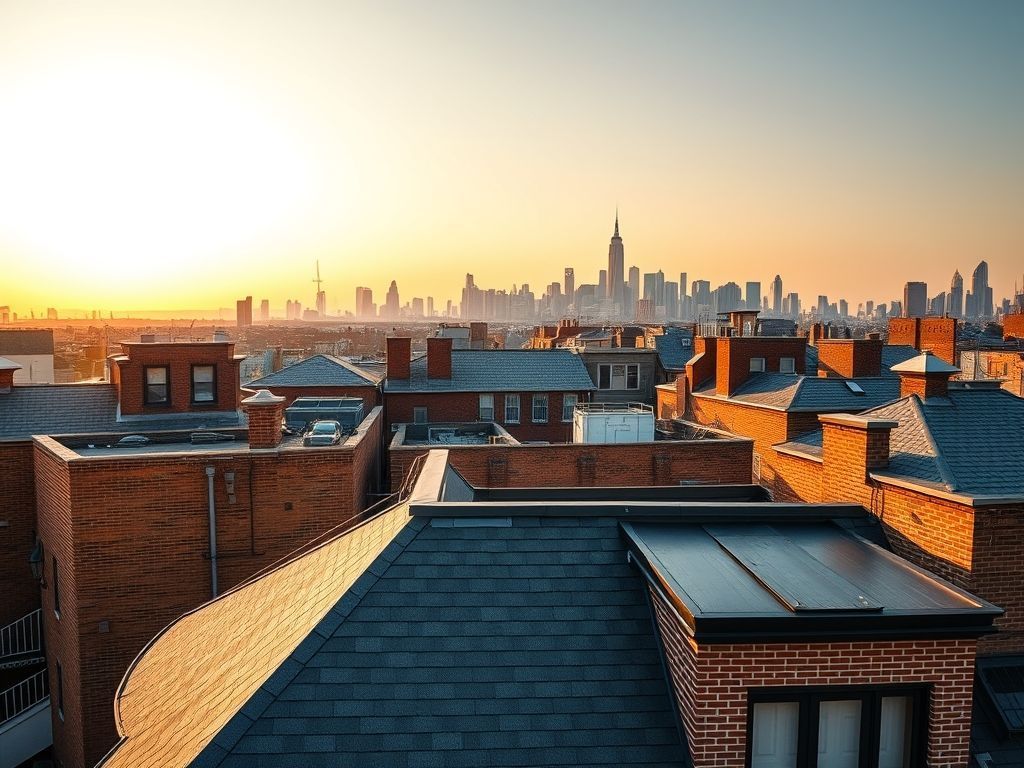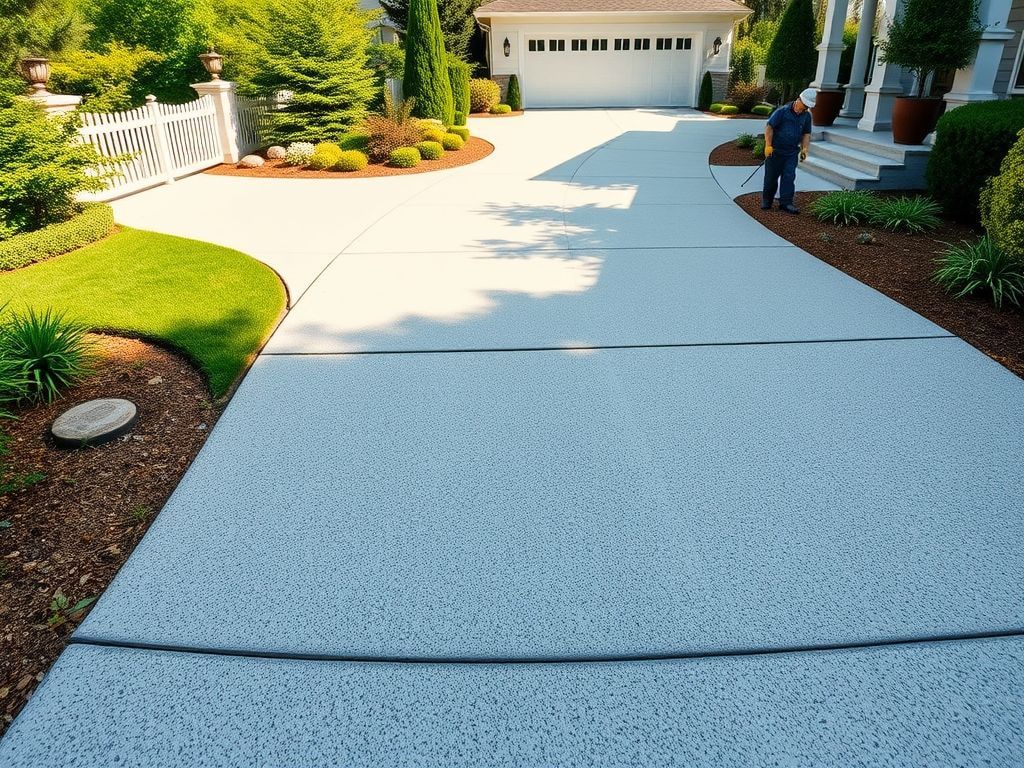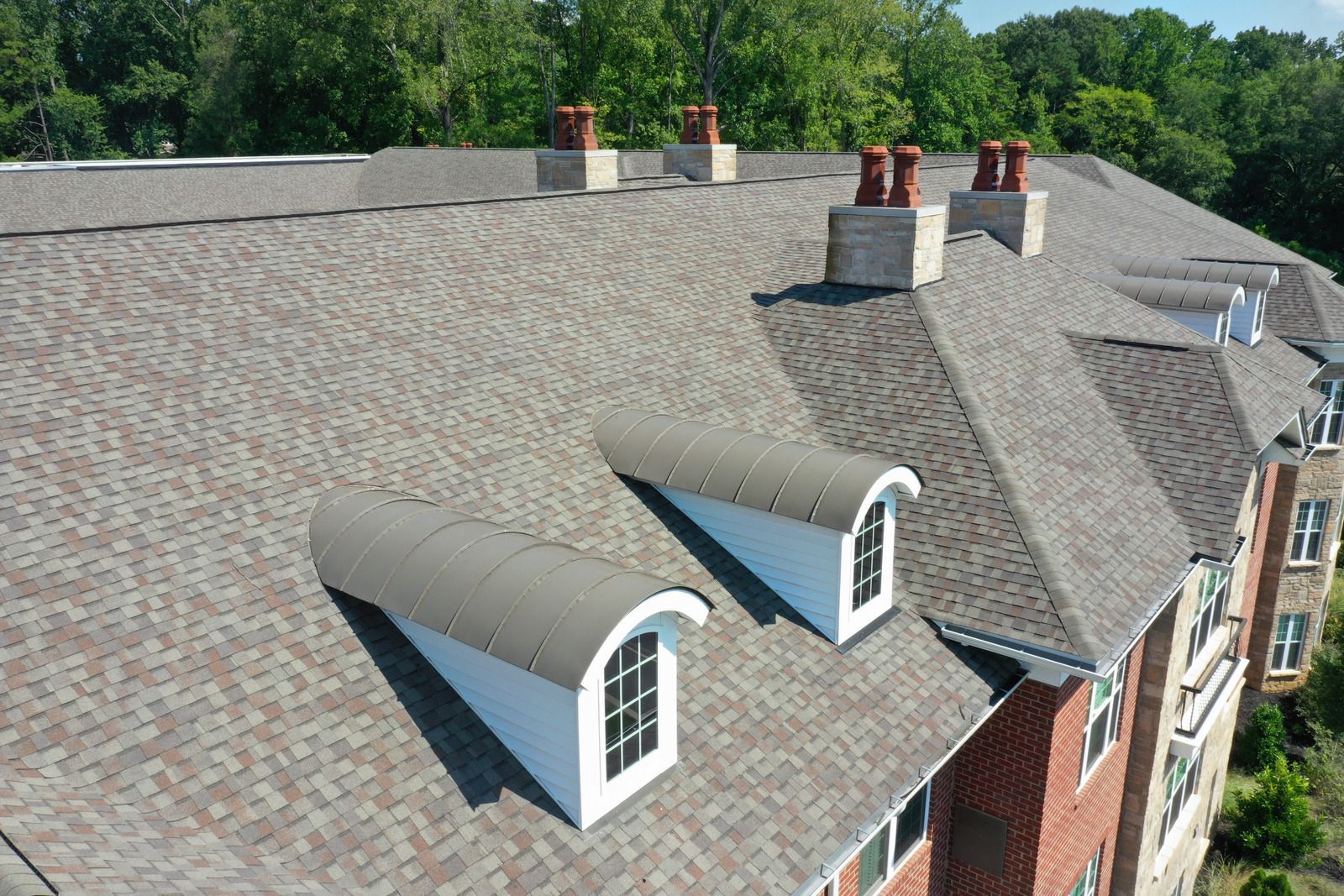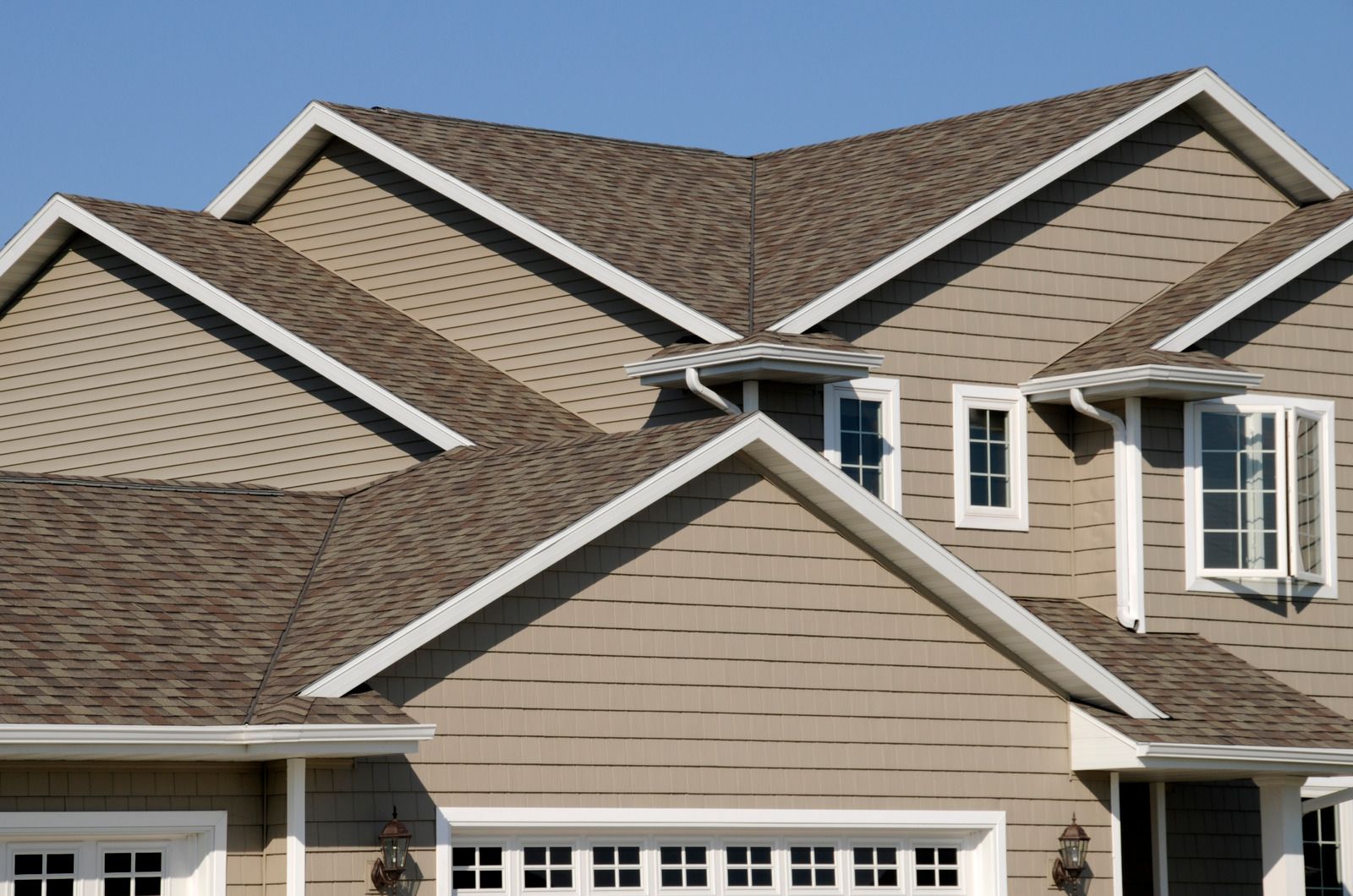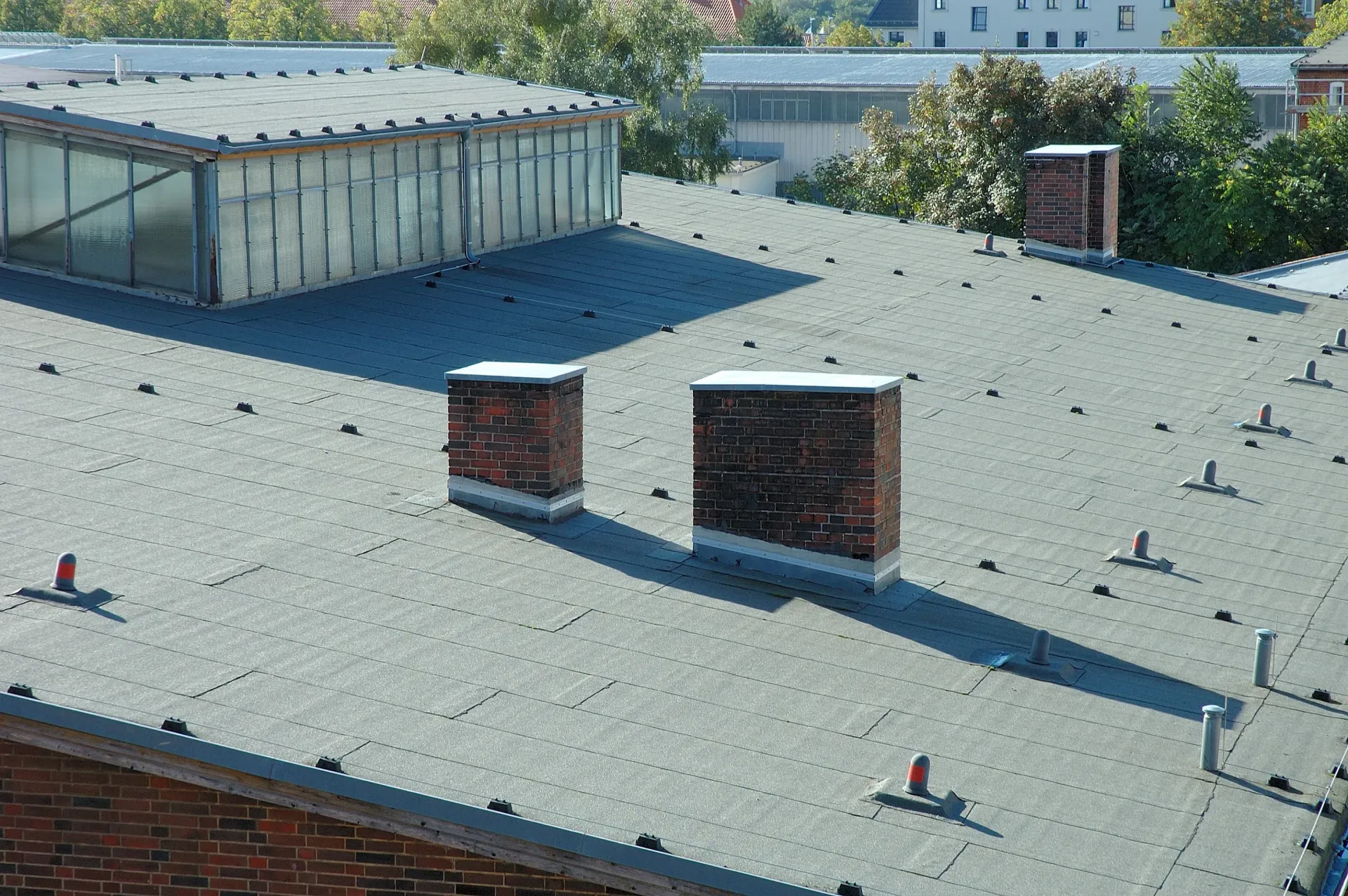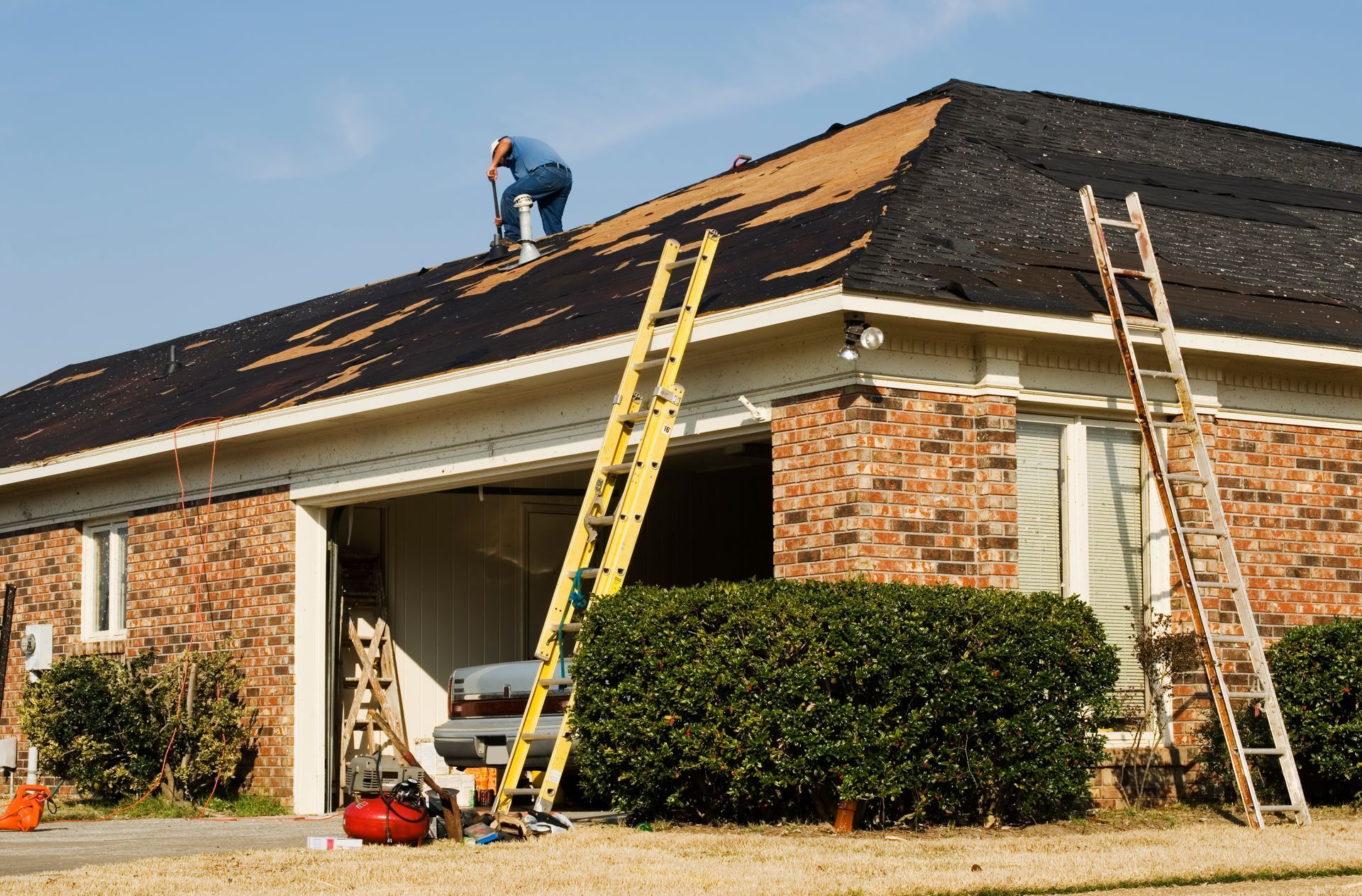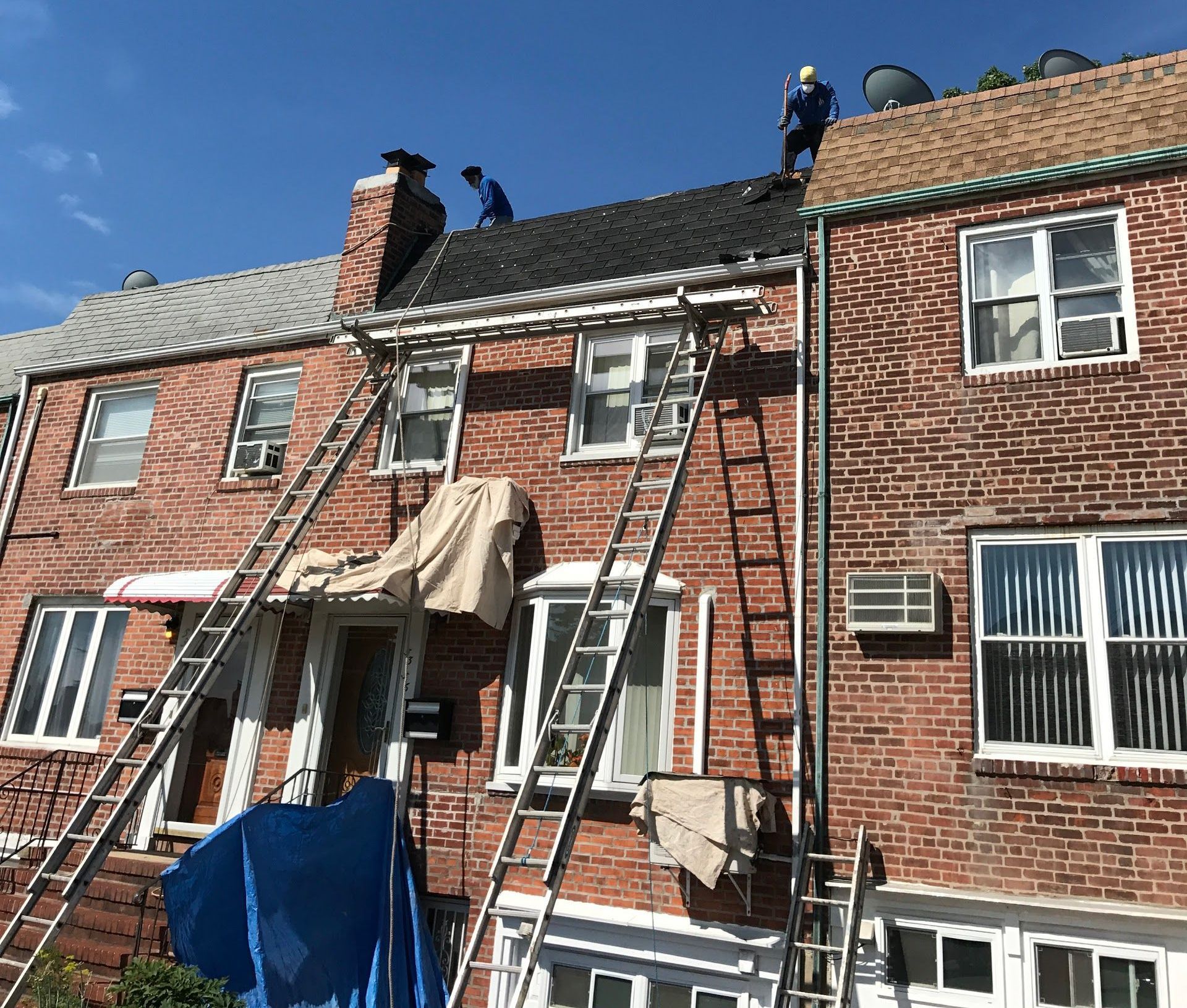Foundation Support: When to Call a Specialized Masonry Team
Article at a Glance:
- Foundation issues in Brooklyn properties require specialized expertise due to unique soil conditions, historic construction methods, and varying environmental factors that affect each neighborhood differently.
- Professional assessment from qualified masonry contractors in Brooklyn, NY is essential before any foundation work, starting with a thorough geotechnical investigation to understand your property's specific soil profile.
- Regular monitoring and documentation of foundation changes helps distinguish between normal settlement patterns and concerning structural movement that requires professional intervention.
- Preventive maintenance following a seasonal schedule proves more cost-effective than reactive repairs, with specific focus on moisture control and drainage management.
- Historic Brooklyn homes, particularly brownstones, require specialized care due to their traditional construction materials like lime-based mortar, which responds differently to stress than modern buildings.
Understanding your Brooklyn home's foundation health and working with experienced masonry professionals ensures both the preservation of your property's historic character and its structural integrity for years to come.
Your historic Brooklyn brownstone tells a story. Each crack in its foundation whispers tales of seasonal changes, urban development, and the passage of time.
For homeowners across Brooklyn’s diverse neighborhoods, understanding when to call in experienced masonry contractors isn’t just about maintenance—it’s about preserving our architectural heritage.
This comprehensive guide serves Brooklyn homeowners who need clear, actionable advice about foundation support and professional masonry services. Whether you're dealing with emerging cracks or planning preventive maintenance, you'll learn exactly when and how to engage professional help.
Professional Assessment: The Critical First Step
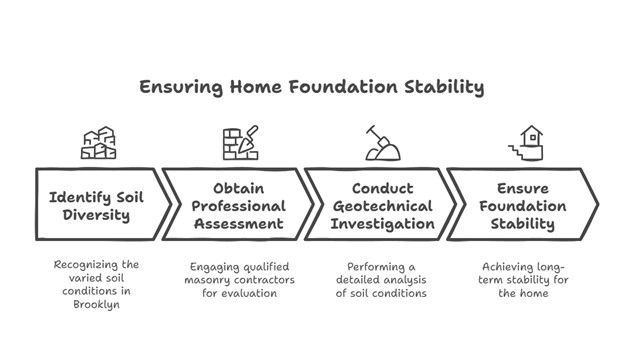
The foundation of your Brooklyn home literally rests upon the soil beneath it. However, soil conditions across our borough are incredibly diverse and can change dramatically even within a single city block.
Before making any assumptions about your property’s soil or taking any action regarding your foundation, it is absolutely essential to obtain a professional geotechnical investigation from qualified masonry contractors in Brooklyn, NY.
This is the single most important step you can take to ensure the long-term stability of your home.
Why Brooklyn Properties Face Unique Foundation Challenges
Our borough’s foundation issues stem from a complex interplay of factors that make professional masonry support particularly crucial.
Brooklyn’s architectural landscape developed gradually, with different neighborhoods establishing their distinct character over various periods. While many homes were built between 1850 and 1930, the timeline varies significantly by area.
For instance:
- Brooklyn Heights saw its major development in the mid-1800s.
- Ditmas Park bloomed in the early 1900s.
These historic homes used period-specific construction techniques and materials that respond differently to stress than modern buildings. Many brownstones utilize lime-based mortar, which offers more flexibility but requires specialized care and understanding during repairs.
This traditional mortar composition plays a crucial role in how these buildings handle environmental stresses and structural movement, making it essential to work with knowledgeable masonry contractors in Brooklyn, NY, who understand these unique characteristics.
Soil and Environmental Factors
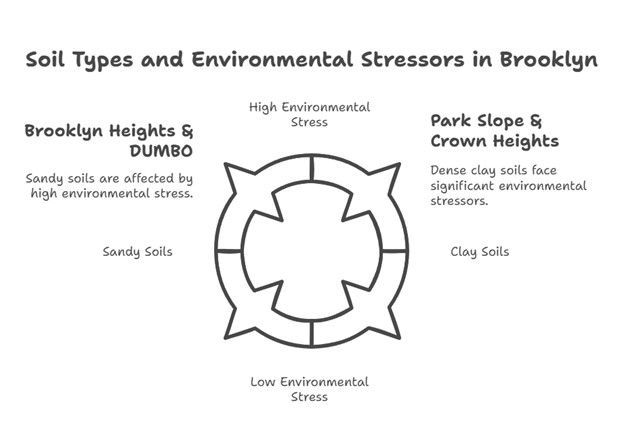
Brooklyn’s soil composition varies significantly, not just between neighborhoods but even within individual blocks.
Examples of Soil Variability:
- Near the East River (Brooklyn Heights, DUMBO) → More sandy, well-drained soils
- Park Slope & Crown Heights → Denser clay deposits known for expanding and contracting with moisture changes
However, the specific mix of soil types will vary from block to block and even from property to property. A geotechnical investigation from experienced masonry contractors in Brooklyn, NY will determine the precise soil profile for your specific location.
Key Environmental Stressors:
- Seasonal freeze-thaw cycles → Expansion and contraction of foundations
- Urban development impacts → Vibrations from nearby construction
- Water table fluctuations → Particularly significant in areas near water bodies
- Temperature variations → Affect building materials differently
- Surface water management challenges → Common in dense urban settings
Understanding Structural Movement: Normal vs. Problematic
Not all foundation movement signals a problem. Brooklyn buildings naturally respond to seasonal changes and settling. The key is distinguishing between normal adjustments and signs that require professional attention.
Normal Settlement Patterns:
- Seasonal adjustments in door and window operation
- Minor mortar joint separation in older buildings
- Small seasonal cracks that respond to weather changes
- Slight floor level variations that don’t progressively worsen
Concerning Movement Patterns:
- Progressive crack widening over time
- Sudden changes in door or window functionality
- Consistent water infiltration patterns
- Visible wall tilting or bulging
- Floor slope changes that continuously worsen
Identifying Foundation Issues: Beyond Surface Cracks
Understanding the difference between cosmetic concerns and structural issues requires careful observation and documentation.
While specific measurement thresholds can provide general guidance, they shouldn’t be used as the sole criteria for determining repair needs.
Exterior Warning Signs: A Comprehensive Guide
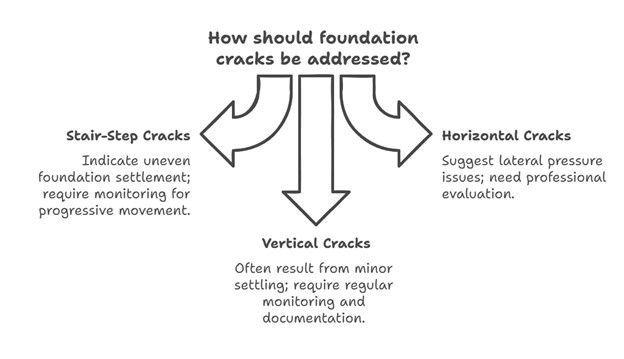
Foundation cracks tell different stories depending on their pattern, location, and behavior over time. Instead of relying solely on measurements, it's essential to monitor changes and patterns that develop.
Crack Patterns and Their Significance:
Stair-Step Cracks
- Follow mortar joints in a zigzag pattern
- Often indicate uneven foundation settlement
- Appear first near corners and openings
- Require monitoring for progressive movement
- Most concerning if they widen consistently
Horizontal Cracks
- Generally indicate lateral pressure issues
- Common in basement and retaining walls
- Particularly concerning after heavy rainfall
- Need professional evaluation regardless of width
- May indicate serious structural concerns
Vertical Cracks
- Often appear in foundation walls
- Can result from concrete curing or minor settling
- Require regular monitoring for changes
- Need assessment if showing displacement
- Should be documented with dated photographs
Interior Signs That Demand Attention
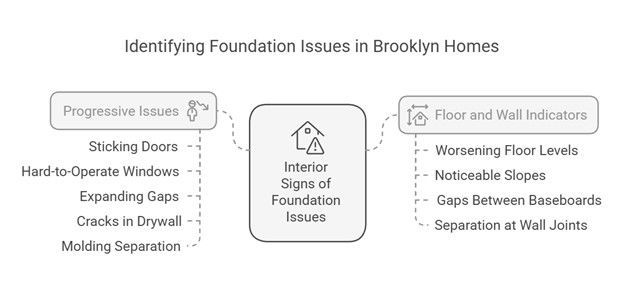
The interior of your Brooklyn home can provide early warnings of foundation issues. These signs often develop gradually, making regular monitoring essential.
Progressive Issues to Watch:
- Doors that increasingly stick or won’t latch properly
- Windows becoming progressively harder to operate
- Expanding gaps between walls and ceilings
- Growing cracks in drywall or plaster
- Molding separating from walls or ceilings
Floor and Wall Indicators:
Changes in floor level deserve special attention, particularly when they:
- Show consistent worsening over time
- Create noticeable slopes
- Develop gaps between baseboards and flooring
- Cause visible separation at wall joints
The Professional Assessment Process
Professional evaluation of Brooklyn’s historic properties requires a systematic approach that considers both traditional construction methods and modern assessment techniques.
A site-specific geotechnical investigation is not optional—it's the foundation of any effective repair or maintenance strategy.
Initial Evaluation Steps:
Historical Review:
- Building age and original construction documentation
- Previous repair and modification records
- Landmark status requirements
- Historical settlement patterns in the area
- Original construction techniques used
Structural Analysis:
The assessment should include:
- Foundation type and condition evaluation
- Load-bearing wall assessment
- Support system examination
- Settlement pattern documentation
- Moisture intrusion investigation
- Site-specific soil composition analysis
- Local groundwater behavior assessment
Modern Diagnostic Tools
Today’s masonry specialists use sophisticated tools for precise evaluations.
Digital Monitoring Systems:
- Track movement patterns over time
- Record seasonal variations
- Document progressive changes
- Provide data-driven insights
Advanced Moisture Detection:
- Map water infiltration patterns
- Measure material moisture content
- Identify potential water entry points
- Track waterproofing effectiveness
Professional Report Elements
A thorough assessment should provide clear documentation, analysis, and actionable recommendations.
Documentation:
A professional report should include:
- Detailed photographs with measurement references
- Scaled drawings of problem areas
- Comprehensive crack mapping
- Moisture reading documentation
- Movement tracking data
- Site-specific soil analysis results
- Local groundwater behavior data
Analysis and Recommendations:
Your report should outline:
- Clear cause identification of foundation issues
- Prioritized repair recommendations
- Detailed solution proposals
- Realistic cost projections
- Timeline considerations
- Site-specific risk factors
- Environmental impact considerations
Selecting and Working with Masonry Professionals
Finding the right professional for your Brooklyn property requires careful consideration of their experience with historic buildings and local conditions.
Your choice of contractor can significantly impact both the quality and longevity of repairs.
Essential Qualifications and Experience:
A qualified masonry contractor should have:
- Current New York State masonry contractor licensing
- NYC Department of Buildings certification
- Comprehensive insurance coverage
- Documented historic preservation experience
- Knowledge of local building regulations
- Expertise in geotechnical assessment
- Experience with site-specific soil analysis
Beyond credentials, also look for:
- Experience with your specific building type
- Understanding of historic construction methods
- Knowledge of local soil conditions
- Track record with similar projects
- Familiarity with landmark requirements
- Expertise in site-specific investigation methods
- Understanding of local geological conditions
The Contractor Selection Process
Initial Consultation:
Every professional relationship should begin with a thorough consultation. This first meeting sets the tone for your project and helps establish clear expectations.
The consultation should include:
Documentation Review:
- Analysis of building history
- Examination of previous repairs
- Review of current issues
- Assessment of maintenance records
- Evaluation of existing reports
- Review of geotechnical data
- Analysis of site-specific conditions
Site Evaluation:
A comprehensive site visit should cover:
- Visual inspection of all affected areas
- Initial measurements and documentation
- Photographic evidence collection
- Discussion of your concerns and goals
- Preliminary assessment of repair needs
- Soil condition assessment
- Local drainage patterns evaluation
Contract Essentials
Your masonry contract should explicitly detail key elements to prevent misunderstandings.
Scope of Work:
- Specific repair methodologies
- Materials specifications
- Areas to be addressed
- Completion timeline
- Quality standards
- Site-specific considerations
- Environmental protection measures
Protection Measures:
The contract should outline:
- Property protection details
- Neighbor notification procedures
- Dust control methods
- Clean-up responsibilities
- Site security measures
- Soil stability maintenance
- Groundwater management
Cost Structure:
Clearly defined financial terms should include:
- Itemized pricing for all work
- Payment schedule details
- Change order procedures
- Warranty specifications
- Contingency allowances
- Site investigation costs
- Environmental compliance expenses
Maintaining Your Foundation: Preventive Strategies
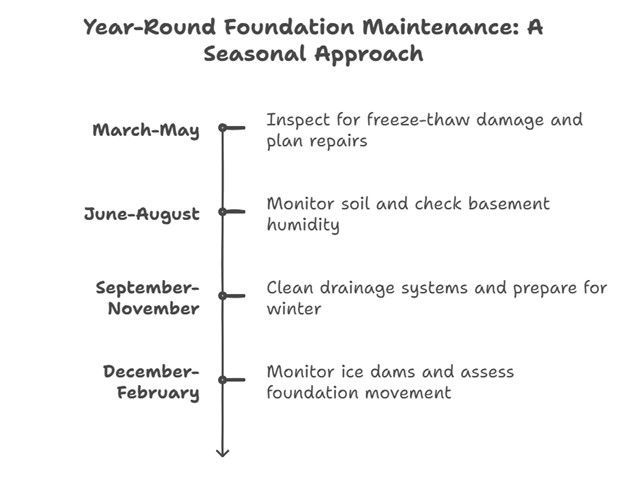
Prevention often proves more cost-effective than repair. A systematic maintenance approach helps preserve your foundation’s integrity and can significantly reduce long-term expenses.
Seasonal Maintenance Guide:
Your maintenance calendar should address specific seasonal challenges:
Spring (March-May):
- Inspect for freeze-thaw damage
- Check drainage systems
- Monitor snow melt patterns
- Plan necessary repairs
- Assess soil conditions
- Evaluate foundation movement
Summer (June-August):
- Monitor soil conditions around the foundation
- Track existing crack patterns
- Check basement humidity levels
- Assess landscaping impact on foundation
- Evaluate ground moisture content
- Inspect local drainage patterns
Fall (September-November):
- Clean and inspect drainage systems
- Test water management systems
- Check window well conditions
- Prepare for freeze-thaw cycles
- Evaluate soil stability
- Address drainage issues
Winter (December-February):
- Monitor ice dam formation
- Check basement moisture levels
- Watch for new crack development
- Assess foundation movement patterns
- Evaluate soil freeze patterns
- Ensure water management effectiveness
Professional Maintenance Services
Regular professional inspections play a crucial role in preserving your Brooklyn home’s foundation. These assessments help identify potential issues before they become serious problems.
Annual Inspection Components:
A comprehensive annual inspection should include:
- Detailed foundation wall assessment
- Complete drainage system evaluation
- Systematic crack monitoring
- Thorough moisture level checking
- Precise settlement measurements
- Site-specific soil analysis
- Local drainage pattern evaluation
Documentation Requirements:
Maintaining detailed records helps track changes over time:
- Comprehensive inspection reports
- Progressive photo documentation
- Regular measurement records
- Specific repair recommendations
- Soil condition monitoring
- Groundwater level tracking
Conclusion: Making Informed Decisions
Your Brooklyn home’s foundation deserves careful attention and professional care. Understanding when and how to address foundation issues helps preserve both your property’s value and its historic character.
Working with knowledgeable masonry contractors in Brooklyn, NY ensures your home receives the expert care it needs.
Key Takeaways:
- Professional site investigation is essential before any work
- Regular monitoring prevents major issues
- Early intervention reduces repair costs
- Expert masonry knowledge is crucial
- Proper documentation protects your investment
- Prevention is more cost-effective than repair
- Site-specific analysis is key to success
Action Steps:
- Schedule a professional geotechnical investigation
- Document all foundation changes promptly
- Budget for ongoing maintenance
- Build relationships with qualified professionals
- Keep detailed records of all work performed
Frequently Asked Questions (FAQs)
Q: What factors most affect foundation repair costs in Brooklyn?
A: Costs vary based on site-specific conditions, repair scope, material requirements, permit needs, and property protection measures. Each project requires an individual evaluation for accurate cost assessment.
Q: How long should foundation repairs typically take?
A: Project duration depends on repair scope, weather conditions, permit processing, and unforeseen circumstances. Minor repairs might take 2-3 weeks, while major structural work could extend several months.
Q: Will my insurance cover foundation repairs?
A: Standard homeowner’s insurance typically covers sudden damage, but not gradual deterioration. Review your policy carefully and document all issues thoroughly.
Frequently Unasked Questions (FUQs)
Q: How do subway vibrations truly affect foundation stability?
A: The impact of subway vibrations varies significantly based on distance, soil conditions, and building construction. Properties near subway lines should undergo a professional vibration assessment to determine specific risks and mitigation needs.
Q: What happens to foundation stability after removing mature trees?
A: Root system decay following tree removal can affect soil stability over varying timeframes, depending on:
- Tree size and species
- Soil type
- Climate conditions
Professional monitoring and soil stabilization may be necessary.
Q: What are the legal implications of party wall repairs?
A: Party wall repair obligations vary based on:
- Property deeds
- Existing agreements
- Local regulations
Consulting with legal experts and reviewing property documents will help determine specific responsibilities and cost-sharing arrangements.
Q: Why is historic mortar composition crucial for repairs?
A: Using incompatible modern mortars on historic masonry can cause severe damage.
- Traditional lime mortars allow necessary moisture movement.
- Modern cement mortars can trap moisture, leading to accelerated deterioration of historic materials.
Professional analysis of existing mortar ensures compatible repairs that protect the integrity of Brooklyn’s historic buildings.
Preserve Your Brooklyn Brownstone with Expert Masonry Care
Your historic Brooklyn home deserves the highest level of craftsmanship and care. At City Suburb, our skilled masonry contractors specialize in preserving and restoring the integrity of brownstones, townhouses, and historic properties throughout Brooklyn, Queens, Manhattan, and beyond.
With expertise in structural support, foundation repairs, and masonry restoration, we use the right tools, materials, and time-tested techniques to ensure lasting results. Our commitment to quality workmanship has earned us the trust of homeowners across New York.
⭐⭐⭐⭐⭐
"Excellent masonry work. Installation of two posts on an existing structural beam for added needed support. I highly recommend."
—
Sibel Gill
📞 Don’t wait for small cracks to become major issues! Schedule your free estimate with our experienced masonry team today. Call us now or browse our website to learn more.
